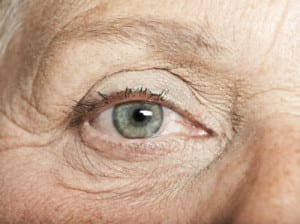
So here are the first five of 10 very important things you might not know:
- In the U.S., diabetes is a leading cause of vision loss.
- Diabetes is the leading cause of blindness among people aged 20-74.
- The most common form of diabetic eye disease is retinopathy, which can potentially lead to extreme vision loss.
- Yet, it’s estimated that 25% of people with diabetes don’t have the recommended annual dilated retina eye exam.
- Experts say the dilated retina eye exam could significantly reduce the risk of vision loss or blindness associated with diabetes.
Diabetic eye disease
This is actually a group of eye-related health issues common to people with diabetes. The usual forms of diabetic eye disease are retinopathy, glaucoma and cataracts. And most people with diabetes are well aware that these harmful eye conditions can be part of their disease. But many diabetics pay little attention to their eye health until they notice that something is wrong with their eyes or their vision. So the next five things may be the most crucial to know:
- The risk of severe vision loss from diabetic retinopathy could be reduced by 95% with early detection and treatment.
- There are often no symptoms until the disease has reached an advanced stage.
- The way to detect diabetic retinopathy early is with a dilated eye exam.
- The best way to prevent unnecessary vision loss is through an extensive annual eye exam.
And 10
With early detection of diabetic retinopathy (and other eye diseases), we can offer several treatment options that could help save your sight.
Make your appointment for an eye exam at Central Florida Eye Institute by calling today: (352)237-8400 or toll-free (800)521-6028.
